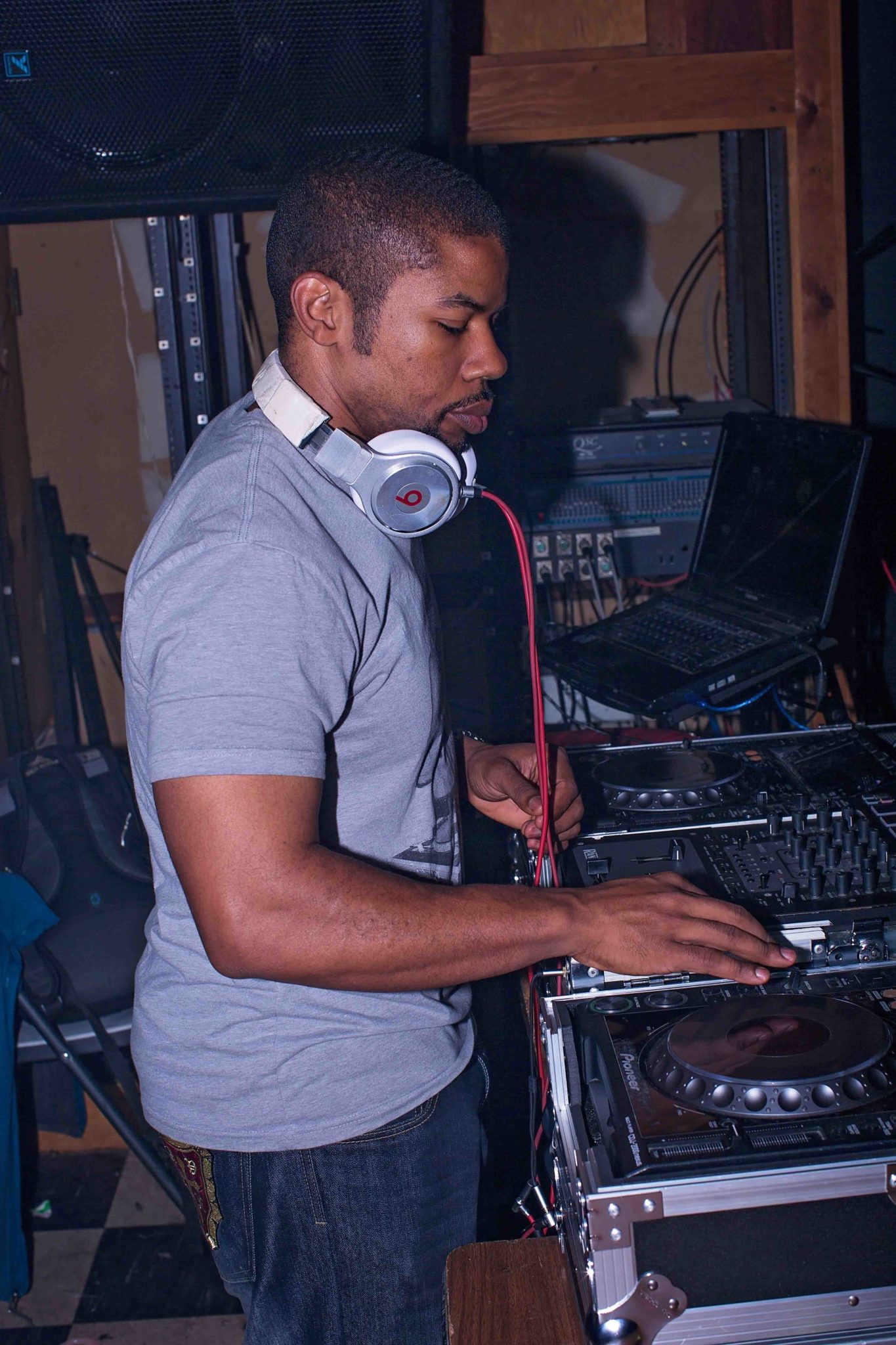
Lukas Cox
You might imagine that a man named DJ Action never has to pay for parking, drive to Toad’s Place from his house or do laundry. You might think that he lives in the bunker beneath Toad’s, subsisting on a steady diet of penny drinks, only ever emerging for Woads or Soads to play a remix of “Party in the U.S.A.” that evolves into Waka Flocka Flame. You might think that DJ Action doesn’t talk, that he communicates solely through emails telling us to hop on over to a dance party tonight, 10:30 p.m. doors! You might picture him on the turntables, always spinning our favorites.
“Call me Tom,” he says. Having paid for parking, DJ Action stands in front of me carrying a well-worn messenger bag, wearing a long fleece jacket and running shoes — less disc jockey and more dad on a run to Home Depot.
We sit down in uncharted Yale territory, a sagging blue couch in the upstairs lounge of Toad’s Place that Tom says smells partly like “animal urine.” In the Emerald City of Yale’s most frequented club, Tom pulls back the curtain to reveal what he does when Toad’s isn’t hopping.
“Sometimes folks have a misconception that DJs have this ultra-glamorous life. They get to party all the time and drink as much as they want to,” Tom tells me. “Not really. Those of us that are good at what we do, there’s a lot of hard work that goes into it. It’s a balance.”
Throughout most of his adult life, Tom has had to maintain that balance. During the day, he’s Thomas Jackson, physical therapist. He grew up in Chicago. He was an avid, almost professional, skier. He likes listening to smooth jazz.
“My father was the DJ that never existed,” Tom says. “This man had so much music from different genres, it would make your head spin.” As a child, he idolized his father’s vinyl albums — Led Zeppelin, jazz, blues, folk, bluegrass and Tom’s favorite, Michael Jackson’s “Thriller.” When his father left for work, Tom made covert trips to the family stereo. His DJing career began when he was five years old. After he accidentally broke the turntables, his father decided to teach him how to use them properly.
Today, Tom DJs for Toad’s Place on Wednesday and Saturday evenings while working other events on the side — nightclubs, b’nai mitzvahs, anniversary parties, weddings. Tom’s DJing philosophy: If it requires music, he’ll do it. In fact, he recently DJed a wedding for a newly immigrated Iranian couple who requested strictly Kurdish or Iranian music.
“I don’t even know what they’re talking about in this song, but it’s got a beat, and it’s got a rhythm,” he says, describing the wedding soundtrack. “If I can feel it, I can play it. You don’t need to know what it’s saying.”
Still, a majority of his clients are Yalies, many of whom visit Toad’s on “Yale Only” Wednesday nights.
Having worked at Toad’s since 2003, Tom has seen his fair share of Woads drama: a guy getting into a heated argument with another guy’s shirt; couples “engaged in bedroom activity” on the dance floor; and people intoxicated enough to warrant emergency transports. In some cases, he’s also witnessed sexual assault.
“It’s a sore spot for me when I hear about assaults,” he says. “I look at some of these guys and I think: You know what you’re doing. You knew that person was not capable of giving consent, and you knew exactly what the hell you were doing … That pisses me off.”
Even when it’s difficult to see everything, the DJ booth also serves as a good vantage point in Toad’s. He notifies club security if he sees signs of a possible assault.
“We have our signals,” he says. “If we see something that doesn’t look so good, we try to do our best to prevent it from going any further. We’ve escorted many young men out of here because they didn’t look like they were up to much good.”
For Tom, DJing involves more than “just machines.” It also involves people’s lives.
“I’ve have people come back and say, ‘Man, do you know you’re the reason I survived four years of college? Really,’” he said.
Tom’s proudest moments are his physical therapy patients’ recoveries. He spoke of a patient who had undergone a craniotomy, a surgical opening of his skull after a brain hemorrhage. For months, he couldn’t talk, eat or use the bathroom by himself. Now, he’s finally back to work.
“I’m not a crier, but he almost got me.”







